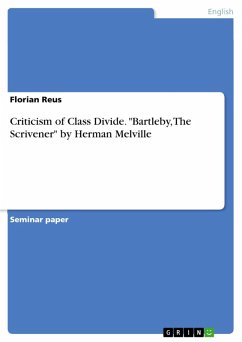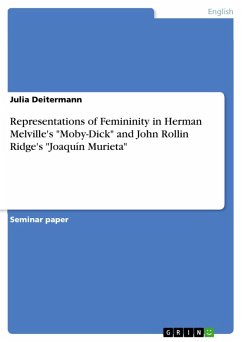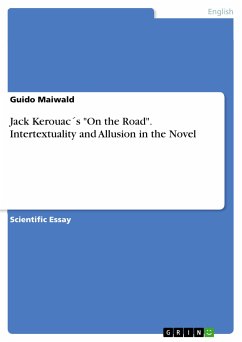Seminar paper from the year 2018 in the subject English Language and Literature Studies - Literature, grade: 1,0, University of Osnabrück, language: English, abstract: In Melville's short story "Bartleby, the Scrivener", the reader is presented with a very visual example of this growing divide. It tells the story of a successful lawyer and one of his scriveners, Bartleby. From the beginning, the two have a strained relationship marked by misunderstanding and isolation from one another. This isolation leads to the famed preference of Bartleby to not do certain tasks and results in a growing and ultimately fatal conflict between these two main protagonists. The Industrial Revolution undoubtedly changed humanity forever and not only revolutionized the way we produce and sell goods but also reformed social structures and dismantled long-established principles of hierarchy and class. In preindustrial times, one's position in society was mostly predetermined by birth, both physically and economically. Wealth and power were almost exclusively inherited and there was practically no social mobility. However, this changed with the advent of industrialization, as there was a new rising class in society: The capitalists. Unlike other social classes that existed until then, capitalists where not created by birth, but rather by economic success. The possibility of social mobility and that birth did, in fact, not determine your success in life, was promising for many. This promise sparked many new concepts of society and equality, one of the most famous being the term of the "American Dream". However, this idealistic imagination of capitalism was soon to be disproven, as the growing divide between the two classes, workers and capitalists, became to appear insuperable.
Dieser Download kann aus rechtlichen Gründen nur mit Rechnungsadresse in A, B, BG, CY, CZ, D, DK, EW, E, FIN, F, GR, HR, H, IRL, I, LT, L, LR, M, NL, PL, P, R, S, SLO, SK ausgeliefert werden.









